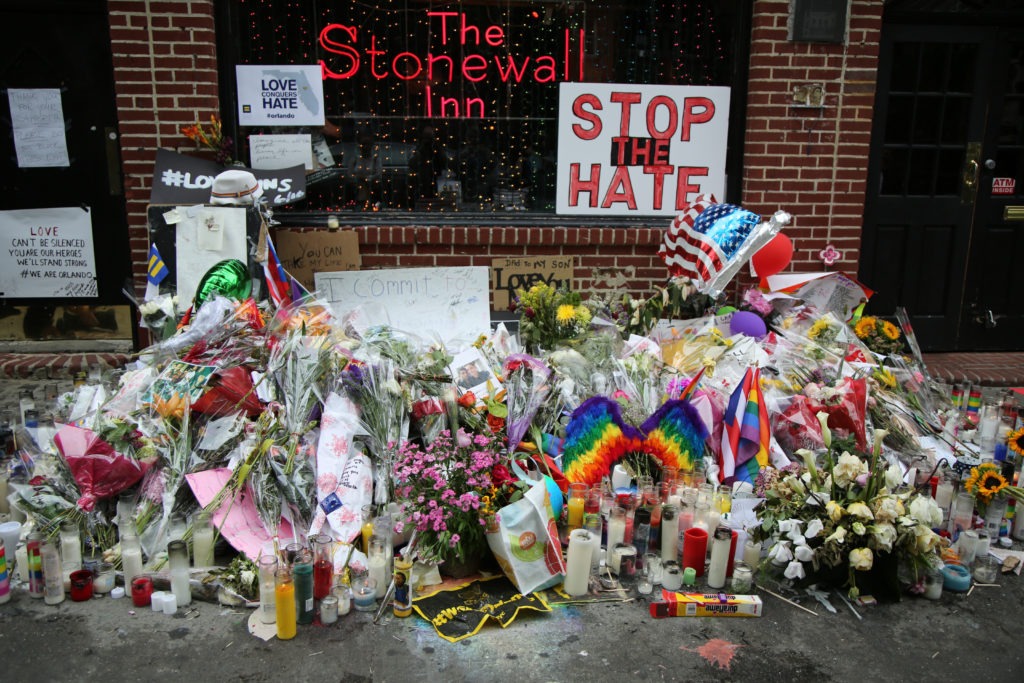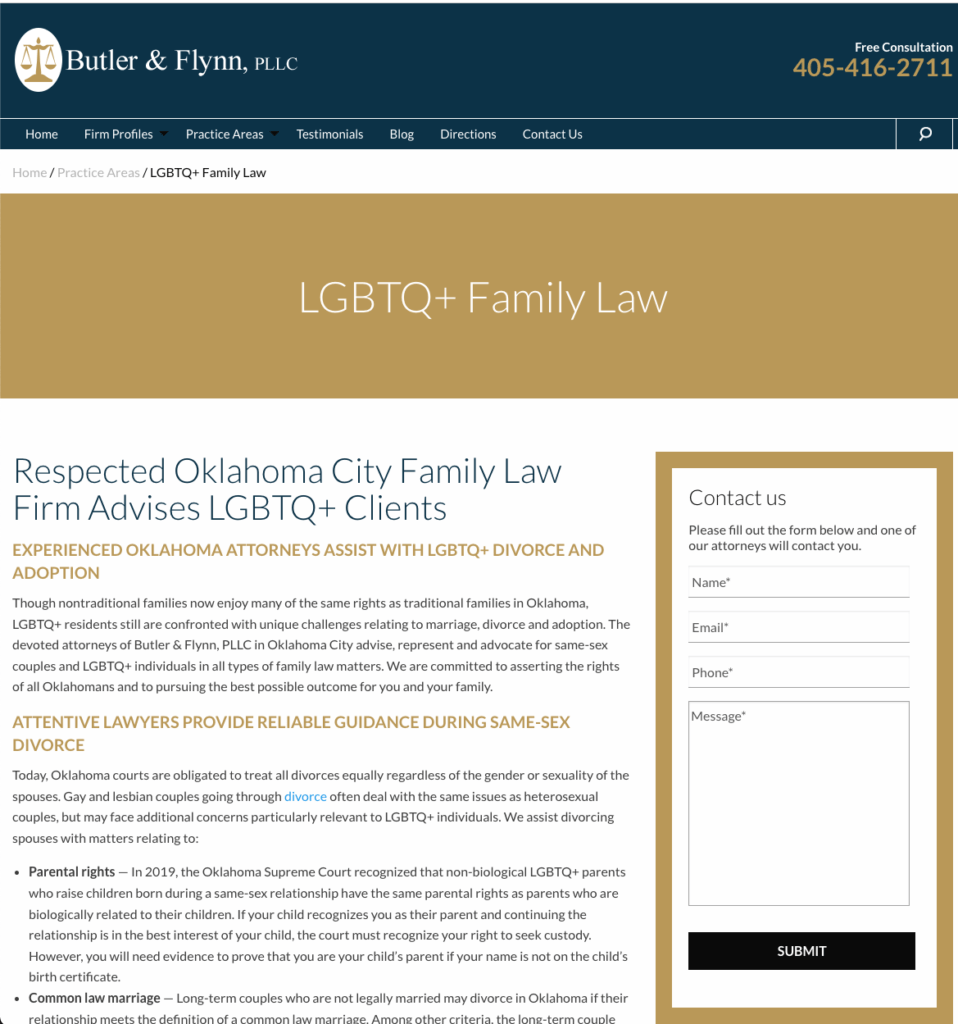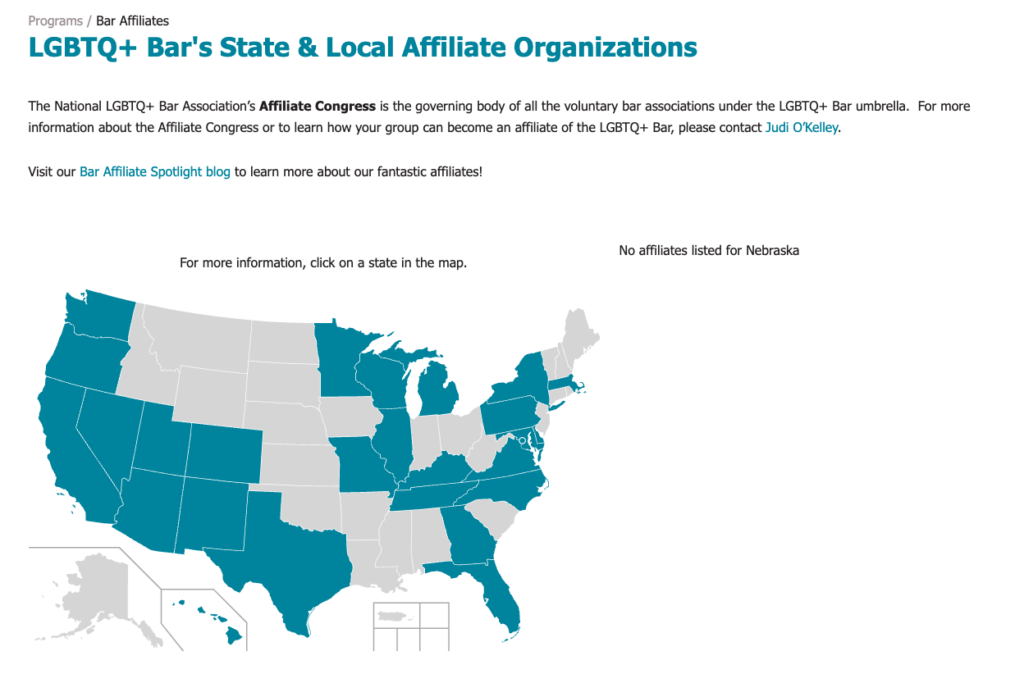It’s June, which means you may be seeing your social media timelines bursting forth with rainbows to celebrate Pride Month. But what is Pride and its significance? And why should our clients be paying attention to the LGBTQ+ community and the issues they face?
Start by learning Pride history
Pride Day is the anniversary of the Stonewall Riots, often cited as the beginning of the gay liberation movement. It’s a celebration of the progress we’ve made, and a sobering reminder of the sacrifices made to get to the relative safety we enjoy today. There’s a lot to celebrate and be proud of!
Same-sex marriage was a huge win, and we are seeing more positive representation in media than ever before. The fact that I can be out at work and write this article is something to celebrate. As evidenced by the hundreds of rainbow logos you’ve seen this month, the winds have changed, and appealing to the LGBTQ+ community is a smart business move.
Things have been getting better, but increased awareness has come with backlash, especially for trans people. Anti-trans attitudes and violence are on the rise, and with new legislation that targets trans folks, hateful people are feeling emboldened to enact violence against us, especially against trans women of color.
Trans folks now have to not only battle ignorance, but rampant disinformation. In industries that don’t specialize in helping LGBTQ+ people, navigating the complexities of genuine ignorance versus obstinance is difficult, especially since many hateful people are well-practiced in hiding their bigotry by feigning ignorance.
My experience when I needed a lawyer
I recently found myself in need of legal help. Sometimes I find myself freezing up in fear when searching for professional services like medical specialists, realtors, accountants, and of course, lawyers. I’ve experienced people’s tones changing dramatically when they discover I’m trans, and received poorer service from that point on.
Navigating the current climate of simultaneous support and backlash is especially difficult while seeking services that require a more personal relationship with a professional. Anyone who requires access to my legal documents will have access to my assigned sex and my deadname. I need professionals who will acknowledge and respect the fact that these documents won’t match how I want to be addressed, and I also need to be able to trust that the professional I’m dealing with is aware of, or willing to make themself aware of, the potential challenges that come with being trans.
In the end, I did find someone willing and able to help me, but it took me months to work up the courage to even seek out the services I need. The fear that has crept into my mind from years of being exposed to anti-LGBTQ+ rhetoric reaches its claws into the deepest parts of my mind, and follows me everywhere I go. It’s a fear that keeps me from traveling where I want, and seeking services that I need.
My experience is unfortunately common in the LGBTQ+ community. It’s something all of my trans friends are feeling right now. With that said, businesses that make me feel safe and welcome doing business with them will quickly earn my loyalty and my dollars.
How lawyers can support LGBTQ+ clients
If you’re a lawyer, what can you do to make potential clients in the LGBTQ+ community feel safer?
Your website is a powerful way to signal real support for the LGBTQ+ community. Here are three things lawyers can do to make trans potential clients like me feel safer filling out that lead form and becoming a new client.
- Have pages on your site that explicitly mention the LGBTQ+ community. These pages should speak with authority on the specific issues and hardships that different members of the community deal with. Name changes, adoption, divorce, custody battles, criminal defense, and immigration (just to name a few) all have unique obstacles for LGBTQ+ people. A lawyer who demonstrates knowledge, compassion, and experience dealing with those obstacles will always be my first choice.
- Have openly LGBTQ+ people on staff; the higher up the better. You can’t always tell who’s LGBTQ+, but sometimes you can. For example, if I see an employee bio that refers to someone with “they” and “them,” I know that someone at that office is comfortable enough to be nonbinary every day they go to work (and coming out at work is hard enough). If they can be out every day, then being out as nonbinary as a client shouldn’t be difficult.
- Join your local LGBTQ+/Lavender Bar Association. When I first searched for an LGBTQ+ affirming lawyer, I found the LGBTQ+ Bar. They are a national association of legal professionals and activists. They have local affiliates across the country. However, there are 23 states, including my own, that have no affiliates. I would love to see this change. Where LGBTQ+ people are less accepted, it’s even more imperative that services like this exist. If you are in one of those 23 states with no affiliates consider starting one.
- Represent other types of diversity in their staff and leadership. If one and two aren’t present, this is the next best thing. Even if I don’t see any openly LGBTQ+ people on staff, or any content that refers explicitly to LGBTQ+ issues, other types of diversity represented in the company are a good sign that the law firm is on board with DEI (Diversity, Equity and Inclusion). People in minority groups, in my experience, are more likely to understand social and legal obstacles and do the research required to tackle them.
What to consider moving forward
Implementing these suggestions for law firms on how to support the LGBTQ+ community isn’t easy. It requires lawyers to be educated on LGBTQ+ issues, to hire LGBTQ+ lawyers, and to take diversity, equity, and inclusion in the workplace seriously.
Many companies want to have their cake and eat it too by painting their logo with rainbows during June while continuing to financially support anti-LGBTQ+ policy. They want to have a fun Pride party while continuing to perpetuate the violence and discrimination directed towards us. Because of this, I cannot trust a business just because it celebrates or even sponsors Pride Month.
The bottom line is that LGBTQ+ people deserve legal representation that understands and respects them. They deserve to do business with professionals who understand the legal and social obstacles they face just by being who they are. It takes more than empty platitudes and Instagram posts to show your support and ability to help the LGBTQ+ community.
As we move forward in the ever-changing world we live in, LGBTQ+ people will continue to need legal representation. I hope there will be lawyers everywhere to fill that need.



